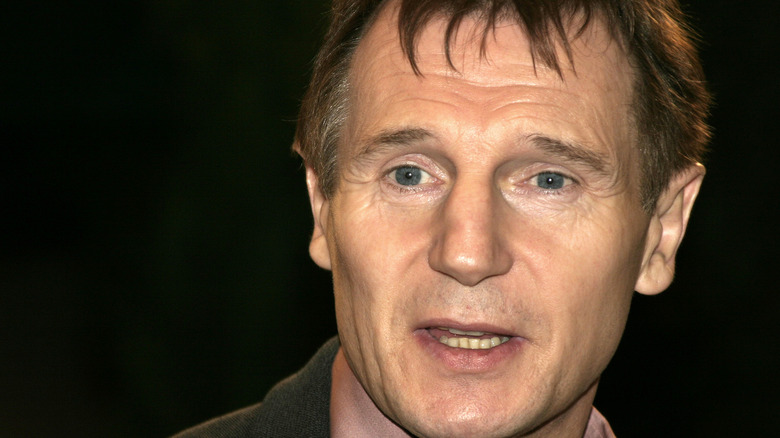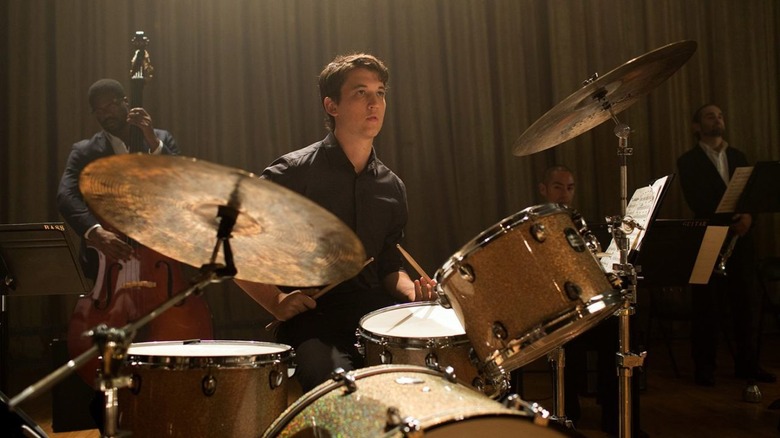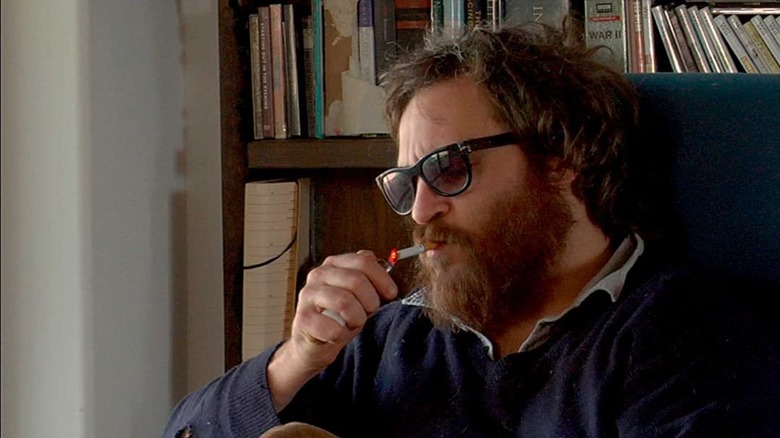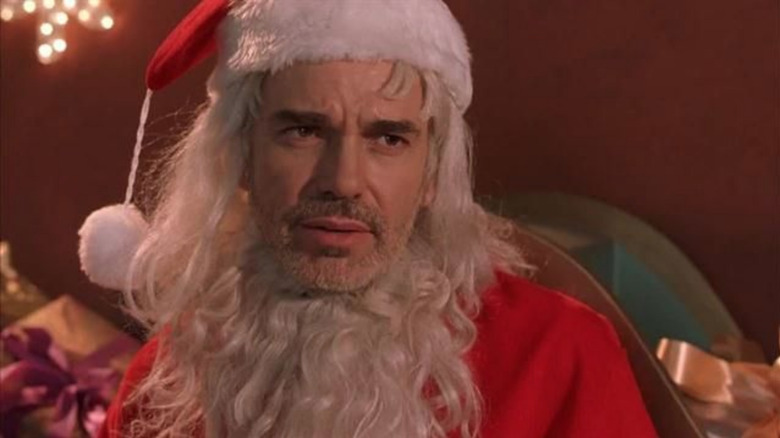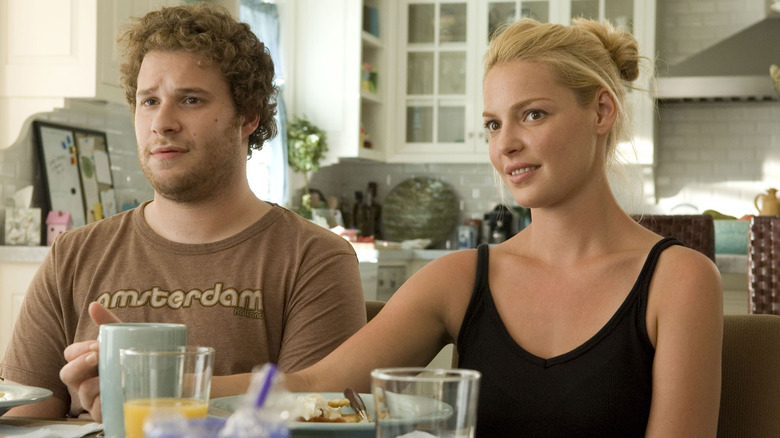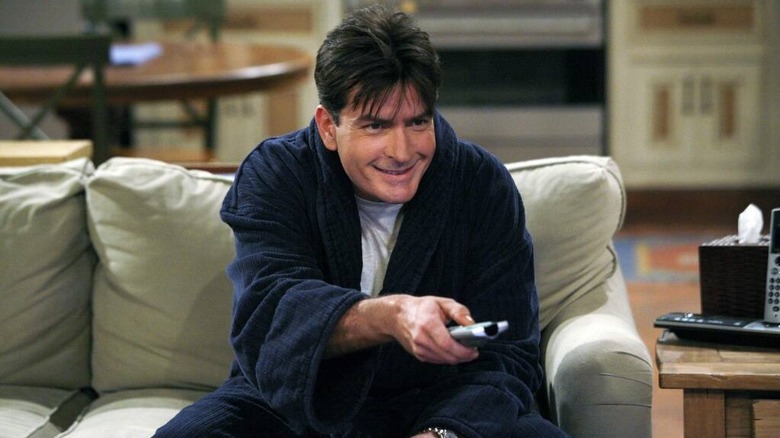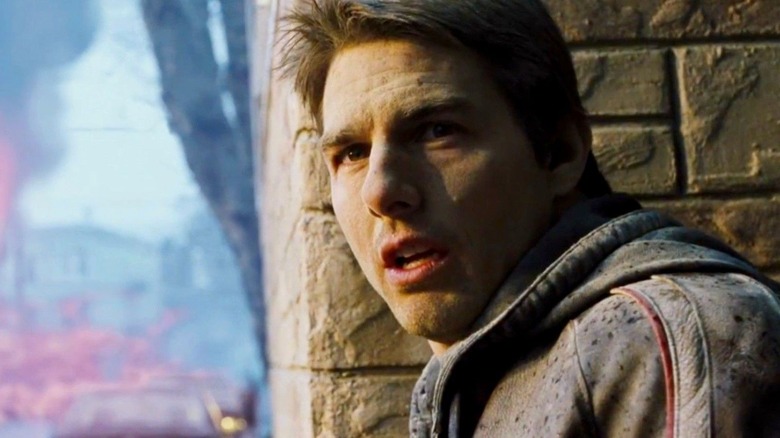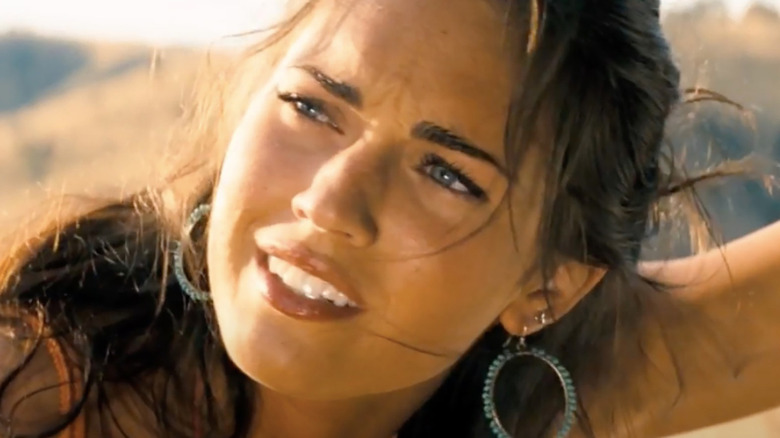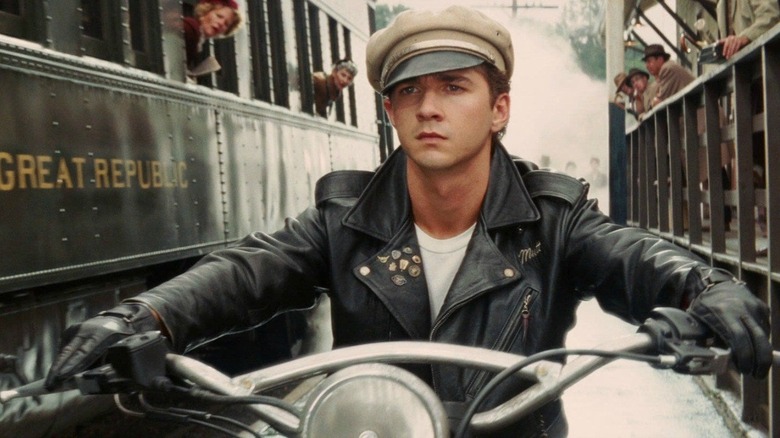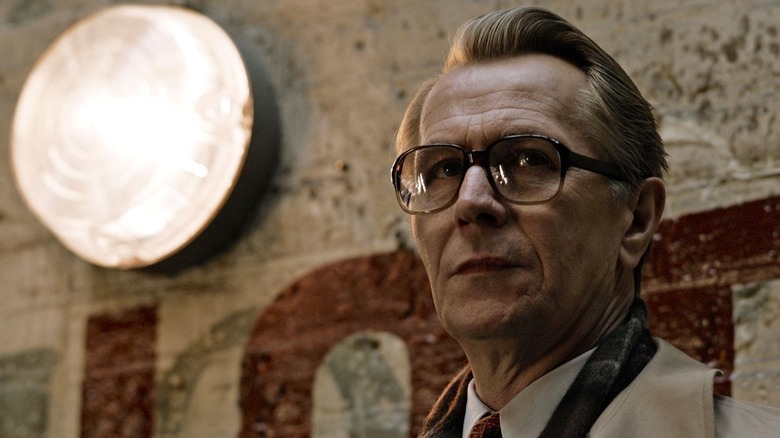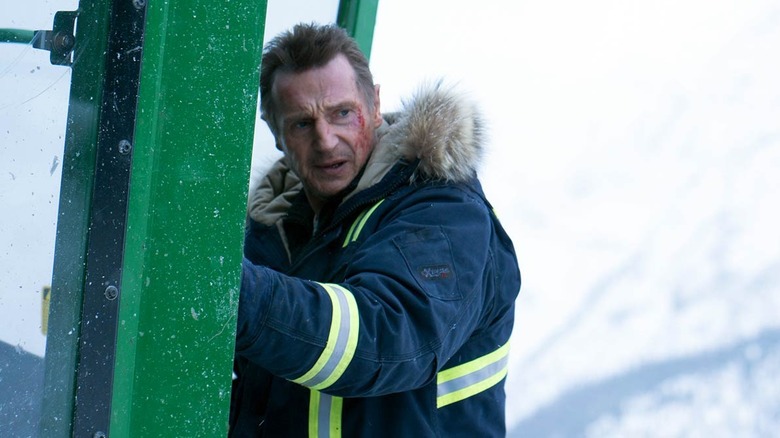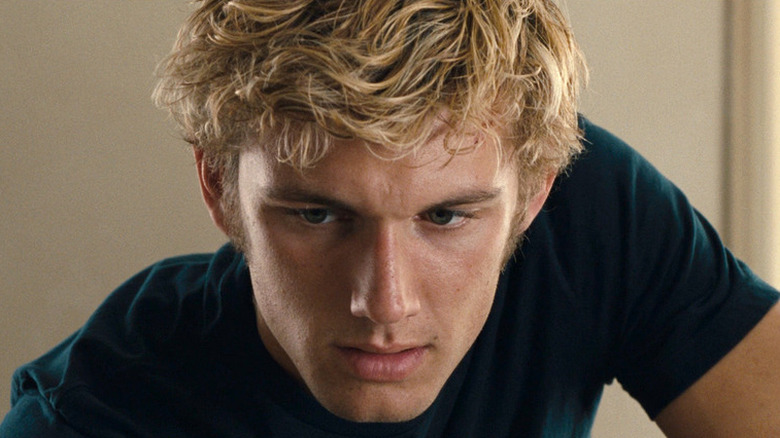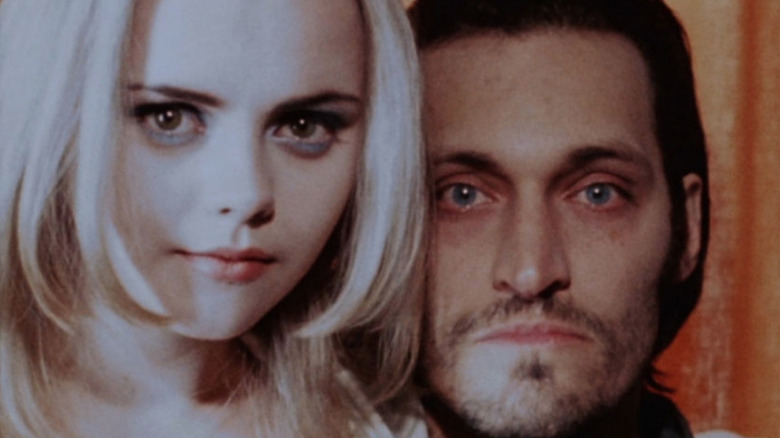Actor Interviews That Nearly Destroyed Their Careers
Actors do a lot of interviews for movies and TV shows. Most go off without a hitch and are forgotten soon after they're published. The interviews that people remember are the ones that go wrong; where the actor says or does something controversial or impolite. A good interview doesn't mean much in the long run, but a bad interview can make headlines and have a much more lasting impact on an actor's career, even potentially threatening their future in the industry. One bad interview can define an actor's public perception for years, as it did for Katherine Heigl, or can turn the person into an online joke, as it did for Billy Bob Thornton.
These are the stories of Thornton, Heigl, and 10 other actors like them, all of whom paid the price for their poorly chosen words and some of whom even lost jobs as a result of them.
Miles Teller's Esquire interview
The future was looking bright for Miles Teller in 2015. He had just starred in Damien Chazelle's Oscar-nominated "Whiplash" and was about to play Mr. Fantastic in the reboot of "Fantastic Four." But the narrative around Teller soured that year with the publication of an Esquire interview with Teller. The article starts with the author "trying to figure out if [Teller]'s a d*ck," the first of multiple instances of him calling Teller "a d*ck." He also writes about Teller making a joke about sexual assault allegations against Uber drivers, and quotes Teller as saying, "I probably think I'm better-looking than the public thinks I am."
Soon after the Esquire article was published, Teller went on Twitter to say the interview was "very misrepresenting" and that he doesn't "think there's anything cool or entertaining about being a d*ck or an a**hole." But the damage was done, with outlets like Salon furthering the interview's narrative about his personality. Teller has remained associated with the interview in the years since. He told The Guardian in 2016 that he felt the interview poisoned his image "for the average person." Most recently, in 2020, he told Men's Health that the experience with the interview was frustrating because his parents had taught him that "the one thing you take to the grave is your reputation."
Joaquin Phoenix on David Letterman
In 2009, Joaquin Phoenix appeared on "Late Night With David Letterman" to promote his new movie "Two Lovers." He showed up disheveled and bearded, and instead of promoting "Two Lovers," he announced he'd be retiring from acting to start a full-time career as a rapper. Phoenix's demeanor throughout the interview was evasive and mumbly, leading Letterman to quip at the end, "Joaquin, I'm sorry you couldn't be with us tonight."
The Letterman interview and Phoenix's "retirement" were later revealed to be part of a hoax, setting up a mockumentary about Phoenix's rap career called "I'm Still Here." But before the truth came out, Phoenix was widely mocked, including Ben Stiller impersonating him on that year's Oscars telecast. The director of "I'm Still Here," Phoenix's brother-in-law, Casey Affleck, would tell Jay Leno in 2010 that no one in Hollywood had actually been concerned for Phoenix's mental health during the stunt, saying, "People were just happy to mock him and make fun of him." After the release of "I'm Still Here," Hollywood was not eager to welcome Phoenix back, with Phoenix only returning to screens in "The Master" two years later (although it's possible that the break was mutual). While promoting "The Master," Phoenix said that the "I'm Still Here" experiment resulted in a "noticeable drop in quality" in the scripts he received because studios weren't sure if he was still playing a character. But "The Master" proved to be a comeback, earning Phoenix an Oscar nomination and paving the path for his eventual Oscar win for "Joker."
Billy Bob Thornton
Just a few months after Joaquin Phoenix's Letterman appearance, another celebrity was mocked for giving an awkward, uncomfortable interview. That celebrity was Billy Bob Thornton, Academy Award-winner and founding member of the rock group the Boxmasters. Prior to a concert in Toronto, the Boxmasters were interviewed on a Canadian radio station, where host Jian Ghomeshi introduced Thornton by noting his film career. Ghomeshi did not ask any questions about Thornton's acting career; the mere mention of it was enough to set Thornton off. He spent the rest of the interview giving terse, nonsensical answers to Ghomeshi's questions. He also insulted his audience in Toronto, calling them "mashed potatoes with no gravy." The video of the interview went viral, receiving 600,000 views within a day.
Thornton later explained that he had requested that Ghomeshi and the radio show's producers not discuss his acting career, saying that "if you look someone in the eyes and promise them something, and you don't do it, you don't get the interview." Ghomeshi responded that he and his station "don't allow anybody to tell us what we can and cannot say." Thornton never apologized for the incident, even after the Boxmasters were booed by the audience at the Toronto concert and had to cancel their remaining tour dates in Canada. Thornton maintained as recently as 2016 that Ghomeshi broke a promise to him. He continues to both act and perform with the Boxmasters, so the interview didn't exactly derail his career, but being the laughingstock of the internet isn't great, either.
Katherine Heigl calling Knocked Up sexist
2007 was a great year for Katherine Heigl. She won an Emmy for her role on the hit ABC drama "Grey's Anatomy" and starred in the Judd Apatow comedy "Knocked Up," which made over $350 million at the box office. But Heigl was not entirely happy with "Knocked Up," so she said something about it. For Vanity Fair's January 2008 issue, she gave an interview in which she called the movie "a little sexist," saying that "it paints women as shrews, as humorless and uptight, and it paints the men as lovable, goofy, fun-loving guys." Heigl's comments were met with fierce criticism, with The Guardian saying that she was dubbed "ungrateful and a traitor" to the creators of "Knocked Up." The controversy around the interview continued to dog Heigl for years after it was published. Heigl would later tell The Washington Post that she believed the interview played a part in getting her branded as "difficult" and "unprofessional" by the entertainment industry.
In 2009, while promoting "Funny People" on "The Howard Stern Show," Judd Apatow and Heigl's "Knocked Up" co-star Seth Rogen publicly criticized Heigl. Apatow said that he was still waiting for an apology from Heigl, and Rogen sarcastically said that Heigl's then-recent film "The Ugly Truth" really "puts women on a pedestal." In 2016, Rogen and Heigl made up with each other, Rogen saying that it was unfair "for other people to not work with her because she didn't like her experience with us."
In addition to alienating Apatow and Rogen, during the same time period Heigl took the liberty of bashing "Grey's Anatomy" on "The Late Show with David Letterman" before she ultimately left the show that had made her a star. When she expressed an interest in a possible return to "Grey's Anatomy" Shonda Rhimes politely expressed in an interview with TV Guide that the show was not on track for that. It could certainly be inferred that Heigl's lack of filter cost her the opportunity to return to the hit show.
Charlie Sheen feuding with Chuck Lorre
Charlie Sheen had a lucrative job as the lead of the CBS sitcom "Two and a Half Men." He made $40 million in total for the show's 2010-2011 season, making him the highest-paid actor on TV at the time. But his time making the show was troubled, as his drug and alcohol addiction meant that production of the show was stopped multiple times in 12 months to allow Sheen to check into rehab. In early 2011, during one such delay in production, Sheen gave an interview to controversial radio host Alex Jones where he criticized "Two and a Half Men" creator Chuck Lorre, calling him a "stupid little man" and saying that he had turned "his tin cans into gold." Following the interview, Sheen's contract for the show was terminated, and he was replaced by Ashton Kutcher.
After his firing from "Men," Sheen continued to insult Lorre and CBS executives, even suing them for wrongful termination. While Sheen gained online notoriety during this time for his catchphrases "winning" and "tiger blood," he did not easily find work in TV or movies. An anonymous studio executive told Deadline at the time that Sheen was "uninsurable" due to his bad behavior and addiction, and Sheen would say in 2018 that he had "been blacklisted from many aspects of the entertainment industry" following the firing. He eventually found a new show, the FX series "Anger Management," but that is his last steady TV job to date.
Tom Cruise having a bad year
Tom Cruise was promoting his lead role in Steven Spielberg's "War of the Worlds" in 2005 when he gave a series of interviews that greatly damaged his movie-star image. The most famous of the interviews was his appearance on "The Oprah Winfrey Show," where he professed his love for then-girlfriend Katie Holmes by jumping on Winfrey's couch. That interview made him the butt of jokes at the time, but his career was more significantly damaged by the interviews he gave about his and Scientology's stance against psychiatry and prescription medication. He criticized Brooke Shields for taking medication for her postpartum depression, and in a particularly infamous interview, he called "Today Show" host Matt Lauer "glib" for discussing Cruise's anti-psychiatry beliefs.
It was reported that Cruise's rants about psychiatry cost him his friendship with Spielberg, and the two have not made a movie together since "Worlds." The biggest impact of the "Worlds" press tour came in 2006, when Paramount head Sumner Redstone terminated the studio's deal with Cruise's production company as a result of his public statements, saying Cruise's "recent conduct has not been acceptable to Paramount." At the time, a USA Today poll revealed that Cruise's public approval rating was only 35%.
Megan Fox comparing Michael Bay to Hitler
Megan Fox had only one theatrical credit to her name when she was cast as the second lead of Michael Bay's "Transformers" in 2007. "Transformers" was a massive hit and made Fox a star, leading to another role for her in its sequel "Revenge of the Fallen" in 2009. But Fox was not entirely happy working with Bay, as she publicly shared in an interview with Wonderland Magazine after the release of "Fallen." In talking about Bay's directing style, Fox called him "a nightmare to work for" and said that "he wants to be like Hitler on his sets" in an attempt to build an "insane, infamous mad-man reputation" for himself.
While Fox also had some kind words to say about Bay's off-set behavior in the interview, the Hitler comparison was what made headlines and led to much negative publicity for Fox. Bay claimed to not have been hurt by Fox's comments, saying, "Megan loves to get a response." When a letter allegedly signed by three "Transformers" crew members after the interview called Fox "as ungracious a person as you can ever fathom," Bay came to her defense, saying "her crazy quips are part of her crazy charm." But Bay also claimed that "Transformers" producer Steven Spielberg told him to "fire her right now" after the interview. Fox was replaced by Rosie Huntington-Whiteley in "Transformers: Dark of the Moon." Fox later worked with Bay again on the two 2010s "Teenage Mutant Ninja Turtles" movies, but her career didn't quite follow the typical path for a leading lady.
Shia LaBeouf criticizing Crystal Skull
Fox wasn't the only "Transformers" star to reportedly earn Steven Spielberg's ire. Spielberg played a part in making Shia LaBeouf a star, producing LaBeouf's starring roles in both "Transformers" and the hit thriller "Disturbia" in 2007. The next year, Spielberg cast LaBeouf as Indiana Jones' son in the sequel "Indiana Jones and the Kingdom of the Crystal Skull." LaBeouf wasn't a fan of "Crystal Skull," and his comments on it landed him in hot water.
LaBeouf first expressed dissatisfaction with "Crystal Skull" in a 2010 L.A. Times interview, where he blamed himself for what he felt were the movie's failings, saying "the actor's job is to make it come alive and make it work, and I couldn't do it." LaBeouf said in 2012 that he "deeply regretted" the comments he made against "Crystal Skull" because they ruptured his relationship with Spielberg, with Spielberg telling him "there's a time to be a human being and have an opinion, and there's a time to sell cars." Despite his mea culpa, LaBeouf made even more derogatory comments against Spielberg in a 2016 interview. There, LaBeouf said, "I don't like the movies that I made with Spielberg," and called Spielberg "less a director than he is a f***ing company" when he made "Crystal Skull." LaBeouf apologized yet again, but this seemed to be the final straw for Spielberg. The next year, LaBeouf's "Crystal Skull" character was officially announced to not be part of "Indiana Jones 5."
Gary Oldman defending Mel Gibson
Mel Gibson has had his own share of disastrous publicity over the last 15 years, starting with anti-Semitic remarks he made during a drunk-driving arrest in 2006 and continuing with domestic violence accusations and audio of him using racial slurs to threaten his then-girlfriend in 2011. Gary Oldman came to Gibson's defense in a 2014 interview with Playboy, but only ended up making trouble for himself in the process. In the interview, Oldman used homophobic and racial slurs to make the point that "we've all said those things" (have we, Gary?) and that targeting Gibson for saying them was "sheer hypocrisy." The police officer who arrested Gibson for drunk driving weighed in on this, refuting Oldman's comment that he himself had used slurs in his life and saying he felt "sorry for people that need to say things about other people in order to justify themselves."
Oldman drew the most criticism for calling Los Angeles "a town run by Jews," saying that Gibson had "bitten the hand that I guess has fed him" by making anti-Semitic remarks. That drew the condemnation of the Anti-Defamation League, with the ADL's director saying his remarks "irresponsibly feed into a classic anti-Semitic canard about supposed Jewish control of Hollywood and the film industry." Following the controversy, Oldman wrote a letter to the ADL saying he was "deeply remorseful" for his words, and later told Jimmy Kimmel that his comments were "offensive, insensitive, pernicious, and ill-informed."
Liam Neeson's revenge tale
Liam Neeson became an action star after making the revenge thriller "Taken," but a real-life story of attempted revenge almost led to the end of his stardom. Neeson was promoting another revenge movie, "Cold Pursuit," in February 2019 when he gave an interview at a press junket about his experience after learning that a friend was raped. The friend identified her attacker as Black, and Neeson responded by wandering through neighborhoods with a nightstick, "hoping some 'Black ba**ard' would come out of a pub and have a go" so that Neeson "could kill him." Neeson regretted doing this, saying "it was horrible, horrible, when I think back, that I did that."
The backlash to Neeson's comments was immediate. Neeson had to further explain himself during a subsequent interview with "Good Morning America," saying that he's "not a racist" and that the incident came out of a "primal urge to lash out" after learning about the attack. The explanation did not satisfy many of his critics, with the Irish Times pointing out that his apology didn't adequately address the racist nature of his initial language about the attack. With the controversy still ongoing, the red carpet premiere of "Cold Pursuit" was canceled.
Alex Pettyfer criticizing Los Angeles
Alex Pettyfer had already developed a bad reputation in Hollywood before any of his starring vehicles even came out. The week before the February 2011 release of Pettyfer's starring role in "I Am Number Four," the Hollywood Reporter published a story about Pettyfer's misbehavior during the productions of "Number Four" and "Beastly," including him standing off with DreamWorks over his salary for "Number Four." With his future Hollywood career already in jeopardy, Pettyfer made the risky move of publicly badmouthing Hollywood as a town.
In an interview with the magazine VMan in April 2011, Pettyfer described Los Angeles as an "insidious pool where nearly everyone lives in fear," and compared being an actor in L.A. to being in prison: "you go, you serve your time, you try to replicate Johnny Depp's career—and then you move to Paris." The interview did not endear Pettyfer to the Hollywood figures who would give him work. Pettyfer later said that the interview was one factor that soured his relationship with Channing Tatum, who viewed Pettyfer as "being a risk" when they were filming "Magic Mike" in the aftermath of the interview. Pettyfer was not brought back for "Magic Mike XXL," and his only major-studio leading role after "Magic Mike" and the interview was the 2014 remake of "Endless Love."
Vincent Gallo trash-talking Christina Ricci
Actor/director Vincent Gallo has had his share of controversial press statements, most infamously a war of words against critic Roger Ebert over his 2003 movie "The Brown Bunny." His first incident with the press occurred after the release of his directorial debut, "Buffalo '66." The film won critical acclaim when it was released in 1998, including a positive review from Ebert. But Gallo soured his reputation when he sat down with a Page Six reporter in 2000. He spoke viciously about his "Buffalo '66" co-star Christina Ricci, who was 17 when she shot the movie. He accused Ricci of either being an alcoholic or being "on cough syrup" while she was shooting the movie. He then called her a misogynist slur and said she was "basically a puppet," claiming he "told her what to do, and she did it."
After his comments about Ricci, Gallo had to self-finance "The Brown Bunny" and has only directed one movie since 2003. He has also not acted in a film since 2013. In 2015, Ricci reflected on her experiences shooting "Buffalo '66," calling Gallo a "crazy lunatic" but also praising "Buffalo '66" as a film and saying Gallo was "a real talent." She believes that Gallo's press antics have led to his decline as both an actor and a director, saying "people have definitely shied away from seeing those movies because of the way he presented himself in the press."
